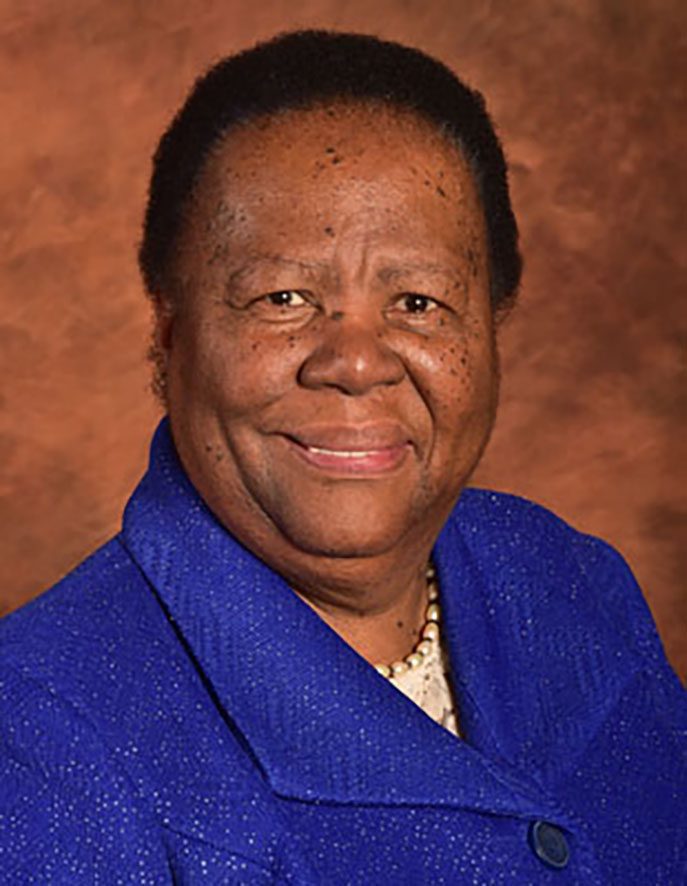South Africa continues to be confronted by challenges linked to our apartheid history. They centre on three elements: inequality, poverty and unemployment. These are challenges we must address to avoid social strife.
Through the generous support of the US government and people, we have made progress in addressing many of the socio-economic challenges in this country, be it in providing access to equal and quality education, decent housing or basic healthcare services to the most vulnerable in society. Our bilateral cooperation is broad, deep and aligned to South Africa’s national priorities.
What stands out in our journey is the significant support given to South Africa to address the pandemic of HIV/Aids through the US president’s emergency plan for Aids relief. This was indeed a game changer as it set the pace for the way we bilaterally, as government and civil society, came together to reverse the devastating impact of HIV/Aids .
The US government makes a significant contribution to our efforts, as outlined in the National Development Plan, to address the triple challenges of poverty, inequality and unemployment. South Africa is the largest US trade partner in Africa. The significant presence of US companies operating within our borders, including investors such as General Electric and Ford in helping to upskill our youth and creating jobs has made the US private sector a key partner in supporting South Africa’s socio-economic growth.
The support shown by US companies for President Cyril Ramaphosa’s investment drive has demonstrated the belief the US still has in the future of our country and the value we offer as a key investment destination and trade partner.
The support we receive from the US to combat the Covid-19 pandemic, and support of the World Trade Organisation TRIPS waiver to enable Africa to produce vaccines locally demonstrates the international solidarity needed to overcome the global challenges of our time.
The world is going through a difficult period. Many countries face high costs for fuel, food and transport. The global economic environment, which is marked by rising inequality, conflict, unequal technological advances and environmental degradation brought about by climate change, has huge implications for food security and agricultural systems, especially in Africa.
The present moment requires us as leaders to come together and chart a way forward that will give hope and inspiration to our peoples. We must ensure the undertakings made at the United Nations, the G7 and G20 to address food insecurity, global health, peace and security, sustainable and just energy transition, as well as human
security, are meaningfully addressed.
We must reinforce our commitment to multilateralism, democracy and human rights, and use diplomacy, peace-building dialogue and mediation to resolve conflict. South Africa is keen to be a partner in this endeavour, informed by our own experiences and foreign policy principles, which are premised on the diplomacy of ubuntu. Our strategic partnership, which is based on common values and aspirations to build peace and prosperity for our respective peoples, is the foundation for the strengthening of our bilateral relationship and to create the conditions for our democracies to thrive.
The implementation of the African Continental Free Trade Agreement and the convening of the Agoa Forum in South Africa next year present both our governments, private sectors and civil society with opportunities to advance our trade and investment relations.
As part of the president’s plan for sustainable economic recovery, a significant portion of planned funding will be allocated to infrastructure works that prioritise environmental protection.
I am excited by the continued support that President Joe Biden is giving to the Mandela-Washington Fellowship through the Young African Leaders Initiative and the good work being done by the US-SA Higher Education Network, as well as the support for our technical vocational education and training institutions that have partnered with community colleges in the US. We also acknowledge the support for training and capacity building for our law enforcement, defence and security agencies.
It is only through open and frank dialogue that we can find solutions that will benefit both our countries and peoples.
- Pandor is Minister of International Relations and Cooperation. This is an edited version of a speech she delivered at the South Africa-US Strategic Dialogue this week in Pretoria
Follow @SundayWorldZA on Twitter and @sundayworldza on Instagram, or like our Facebook Page, Sunday World, by clicking here for the latest breaking news in South Africa. To Subscribe to Sunday World, click here



